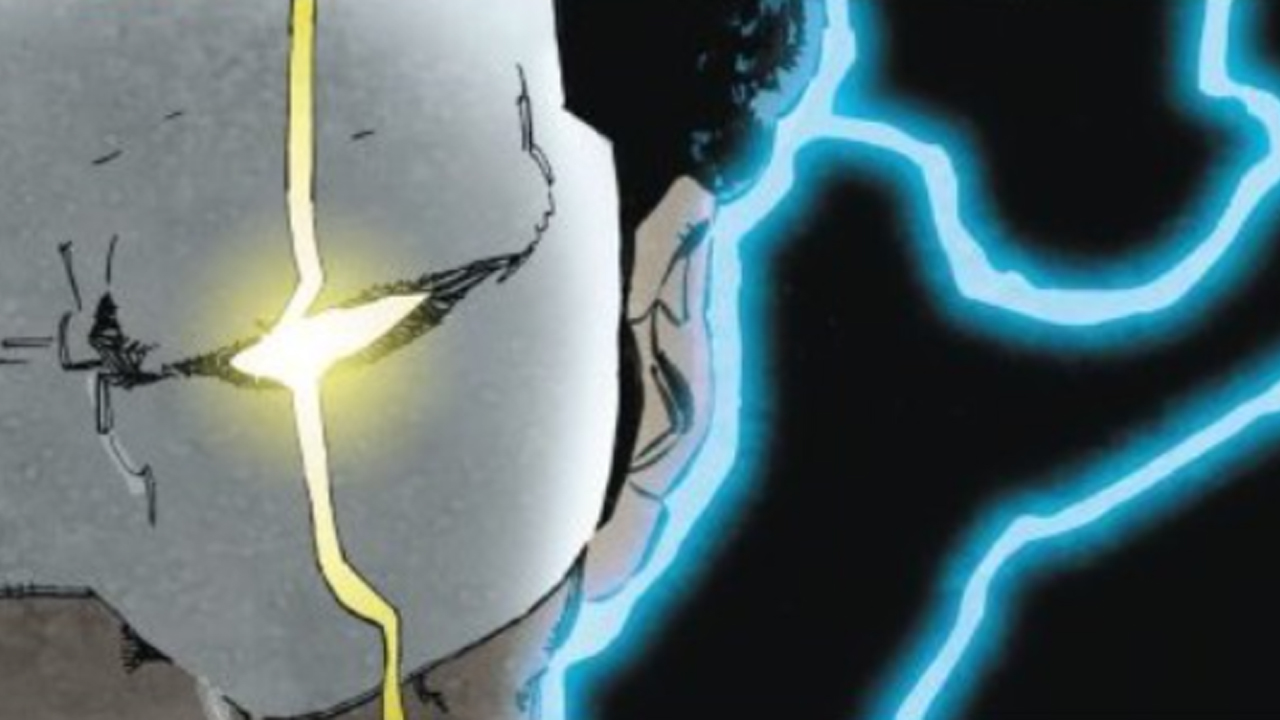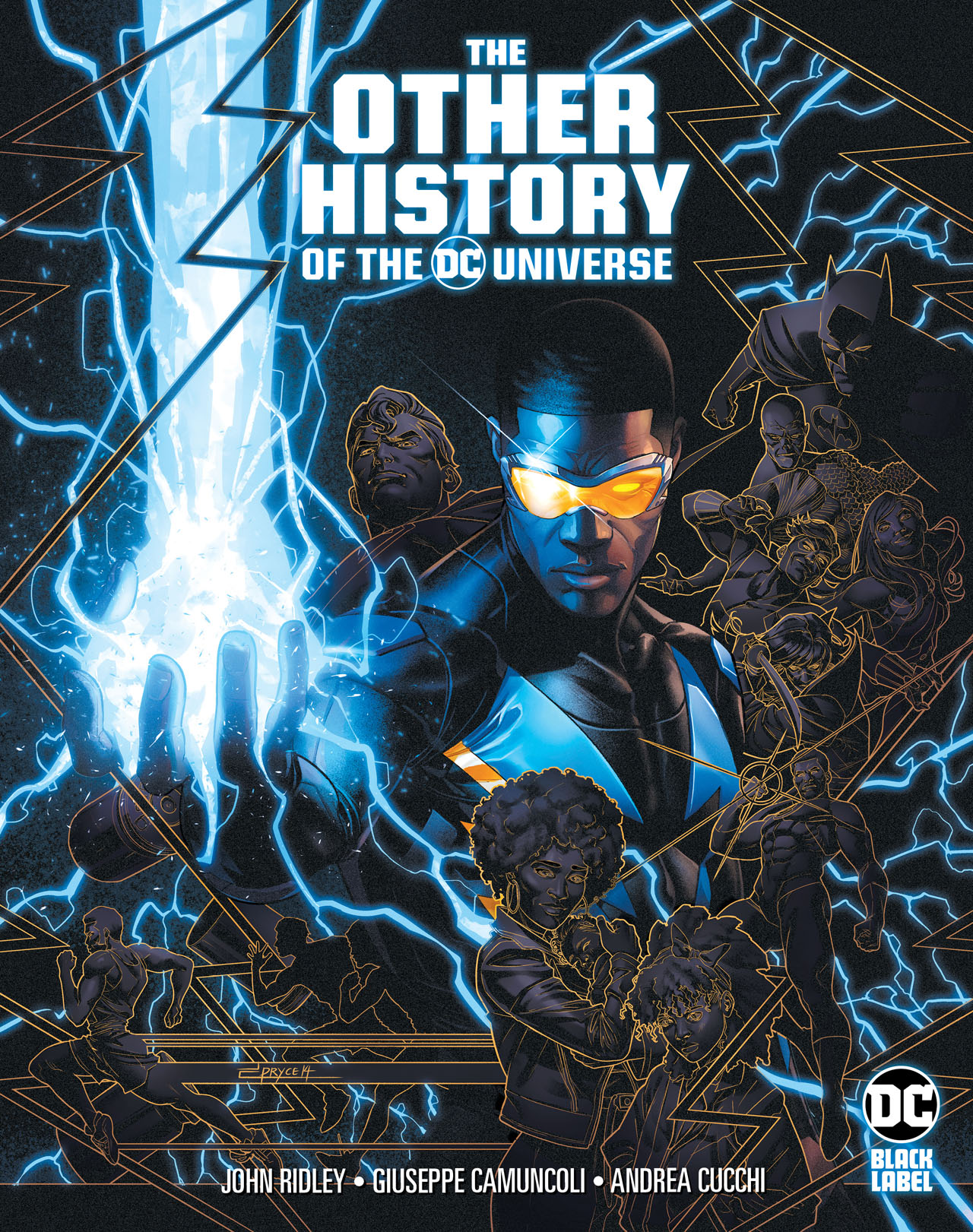Best Shots review: The Other History of the DC Universe #1 "feels especially reflective of our times"
A grounded look at the DC history that's become etched in our minds

To engage with United States history is to engage with the pot of boiling water with a lid tightly clasped. The water is too high. It bubbles violently under the surface. It spills out the sides when it can and evaporates as soon as it's met with the flames beneath. There's a lot of talk by people a lot more intelligent than me about how there are two Americas - a distinct dichotomy between the haves and have-nots. Lines are drawn on the basis of race, gender, wealth, sexuality, and more. We are not 'one human race' as many like to say, hoping to avoid a challenging conversation at family dinner. But no human experience is a monolith. So if there was ever a comic book that feels especially reflective of our times, it's The Other History of the DC Universe #1.
Written by John Ridley
Art by Giuseppe Camuncoli, Andrea Cucchi, and Jose Villarubbia
Lettering by Steve Wands
Published by DC/Black Label
'Rama Rating: 8 out of 10
It turns out there are two DC Universes, too.
I can hear some of our readers already recoiling at that introduction. "Keep politics out of comic books! This is just meant to be escapism! Get woke, go broke!" But if that's what you've been getting from superhero comic books this whole time, I don't think you've been paying attention. While the DC Universe is one of humanity's great fictions, the experience of the characters that exist within it is not a monolith either.
Writer John Ridley already has quite the accomplished resume across TV, film, and publishing. He won an Academy Award for Best Adapted Screenplay for 12 Years A Slave in 2014. His approach to the DC Universe in this book allows us to see the world from an angle we rarely consider. What's it like to be Jefferson Pierce (a.k.a. Black Lightning) in a world where not only the people in power don't look like you but most of the people with powers don't either? And when someone you seemingly can relate to (in this case, Green Lantern John Stewart) has been elevated by the culture that rejects you, how do you handle it? This is more than Spider-Man being seen as a menace by J. Jonah Jameson. Jefferson Pierce's race is directly tied to the way he's seen by the world around him. And Ridley uses that further as an opportunity to tie DC history together with world and US history. Superhero universes often have a lack of grounding but Ridley makes it a point to bring them together.
As he told Newsarama recently, "One of the things that I really wanted to do was to try to marry the Other History of the DC Universe with real history, as much as possible. Whether that's additional locations, Jefferson in the first issue talks about spending time in Milwaukee, talks about being in real places, certainly real moments in history from the Munich massacre to the Iran hostage situation. Where, hopefully, if we've all done our jobs correctly, it feels like you can track these characters through a real history and what it was like to be an individual with extraordinary abilities and be faced with challenges that are not just portals opening in the sky and aliens dropping in, but real challenges. That powers alone are not always enough to combat the challenges that people face in the world...."

And I think that's where Ridley succeeds. I mentioned Spider-Man earlier and that character's memorable maxim, "With great power comes great responsibility," looms large over the entirety of superhero storytelling. In this story, we see how directly that affects Jefferson Pierce and how he relates to and interacts with John Stewart. The struggle of people of color in America cannot be reduced to how they are forced to engage with a society that rarely acts in their best interests. It must be considered how expectations inform daily interactions with and understandings of individual people. Pierce sees Superman as privileged and Stewart as an "anointed" Black man by the powers that be. But he learns something when he considers the burden that Stewart faces being "the first" Black Green Lantern and how that weighed on him in the face of the tragedy of Xanthia.
If there's anything to knock in this issue, it's the way Ridley and artists Giuseppe Camuncoli and Andrea Cucchi choose to frame this narrative. Ridley claims that it is Jefferson Pierce's inner monologue but the combination of fairly status images, long sections of prose, and the amount of time covered to make it read more like someone giving a speech than their inner thoughts. I think that it effectively communicates Ridley's ideas but it almost feels more like an essay than a story. The standout moments are Jefferson confronting Superman and John Stewart but there's a passivity to the way they are delivered. Furthermore, Camuncoli's usually less sketchy style doesn't come through in Cucchi's finishes here. That does give the book a sort of retro feel that plays to the eras that are shown on the page but runs a little bit counter to some of the more inventive layouts that Camuncoli uses. (I particularly like the spread that uses the Justice League shield as panel borders.)
Get the best comic news, insights, opinions, analysis and more!
The Other History of the DC Universe takes advantage of the DC Black Label prestige format in a much different way than other offerings we've seen from the line. It's not an edgy story meant just for 'mature readers' or an opportunity for a creator to push the boundaries of what's acceptable with a character. Instead, it's a writer examining our modern mythologies and the way they weave together with reality. Ridley examines how the prejudices, both personal and societal, that affect our world also affect the world of our favorite heroes and villains. This is meant to be a statement piece about how the world on paper isn't all that different from the world outside our windows because it's still informed by similar structures. Those systemic issues don't just go away when rendered in two dimensions instead of three.
Read Newsarama's interview with John Ridley on The Other History of DC Universe.
Pierce Lydon has been a contributor to Newsarama for over 10 years, writing everything from reviews to deep dive explainers, to interview pieces and best lists.


